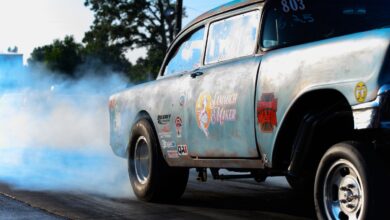Industry Plays Nice with CARB & EPA
Since the early 1970s, as a result of the Clean Air Act, it’s been illegal to tamper with emission equipment on internal combustion engines.
Various laws, statutes and policies enacted by various governmental entities regulate its enforcement, reaching deep into all types and uses of engines including racing engines, off-road engines, and even chain saws and lawn mower engines.
The State of California enacted the strictest of those regulations, known in the automotive industry by its acronym, CARB – California Air Resource Board.
Two common industry terms arose after California’s emission standards became law: 50-state legal; and 49-state legal. The terms differentiated any aftermarket parts that either passed California’s standards or did not pass.
Along the way, the process of applying and receiving approval from CARB for a new aftermarket part was increasingly complex, often unclear and always time-consuming.
This should all change according to representatives from SEMA, CARB, and the United States Environmental Protection Agency who discussed the situation during a 90-minute seminar at the SEMA show in Las Vegas on November 1.
In an effort to create a process that is understandable and that will encourage compliance, CARB has announced a new approach that will streamline and update procedures on a fast track that effectively eliminates at least one step and slashes the time needed for approval. It will standardize the application process, create an online database where information can easily be found and will set up online documentation management.
During the next year, manufacturers, representatives from SEMA, CARB and the EPA will meet to address specific concerns and procedures for testing various components such as air induction systems, forced induction systems, tuners, fuel tanks, etc.
The goal is to dramatically reduce the amount of time required for manufacturers to receive a CARB Executive Order (EO) for an aftermarket part, while ensuring a level playing field for competing manufacturers – and ensuring air quality remains high.
Click to learn more information on this topic from SEMA Garage.



